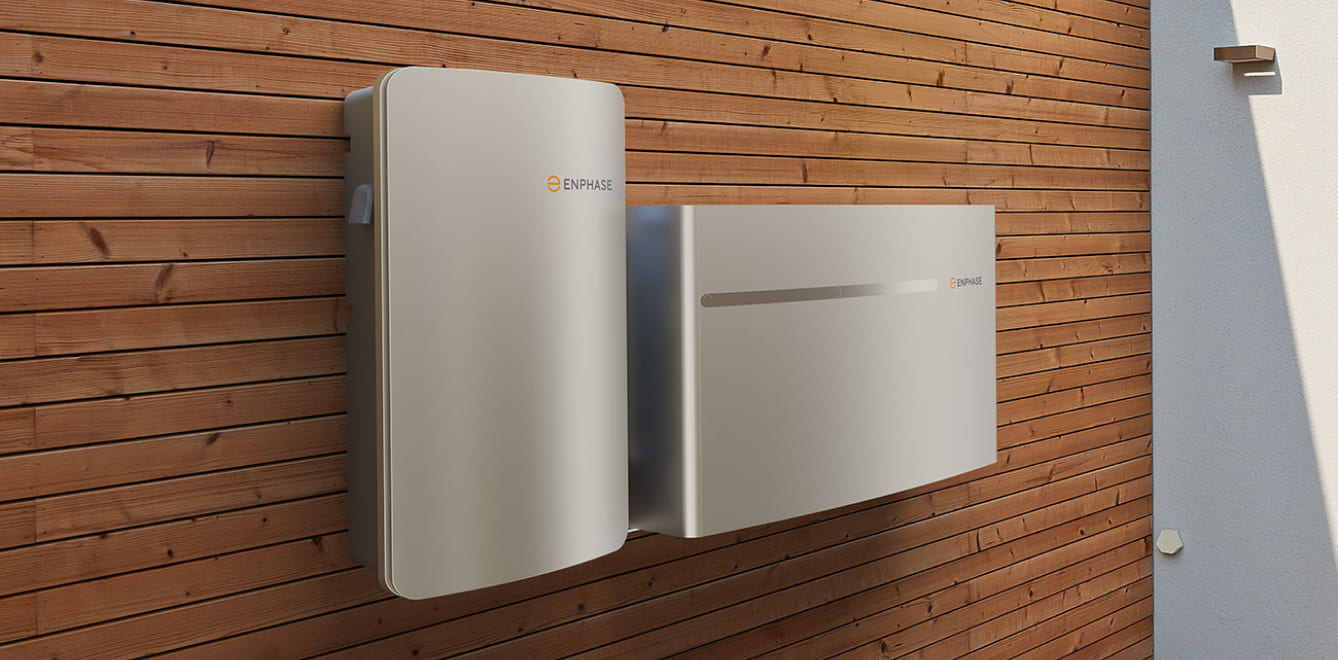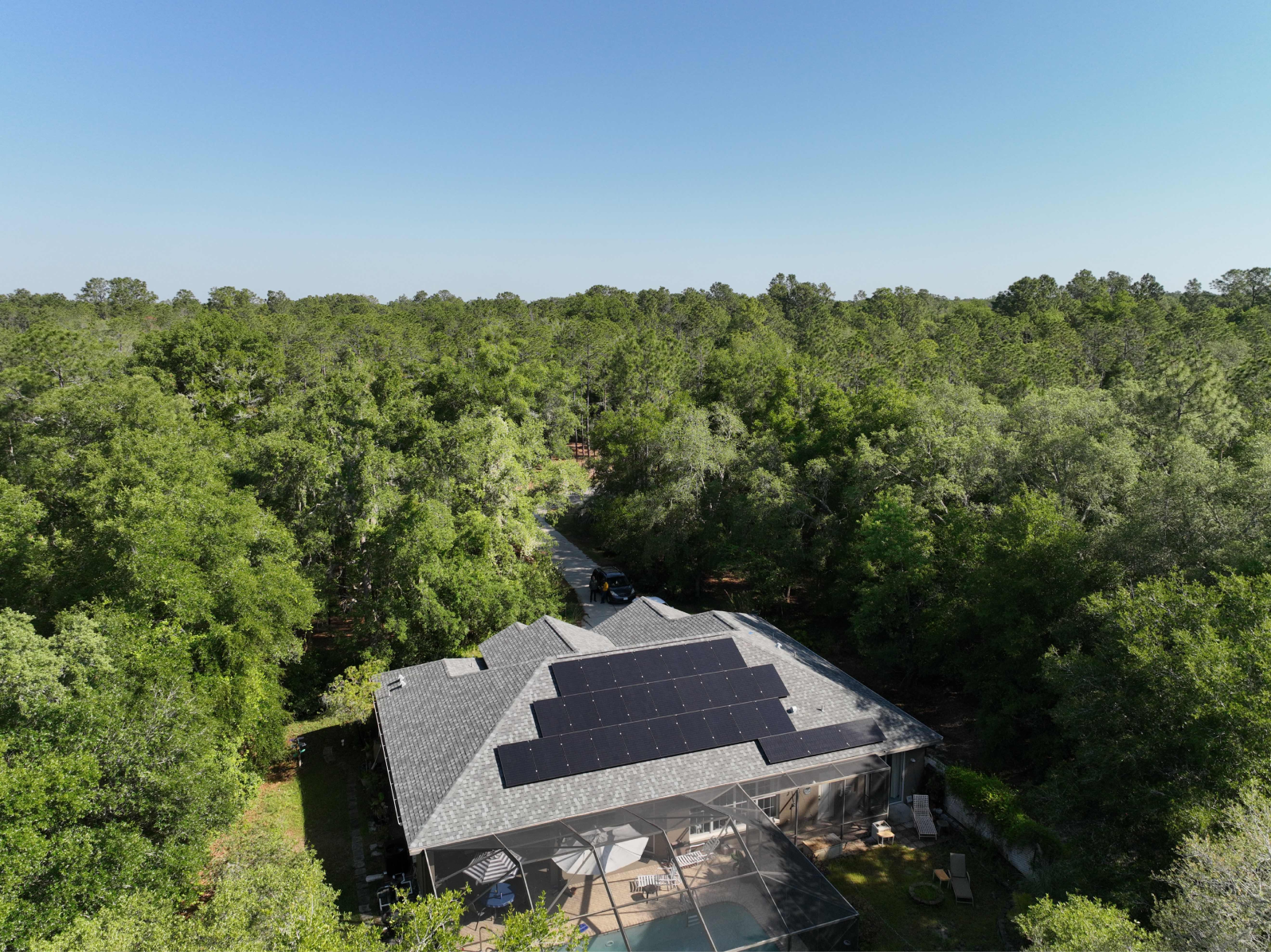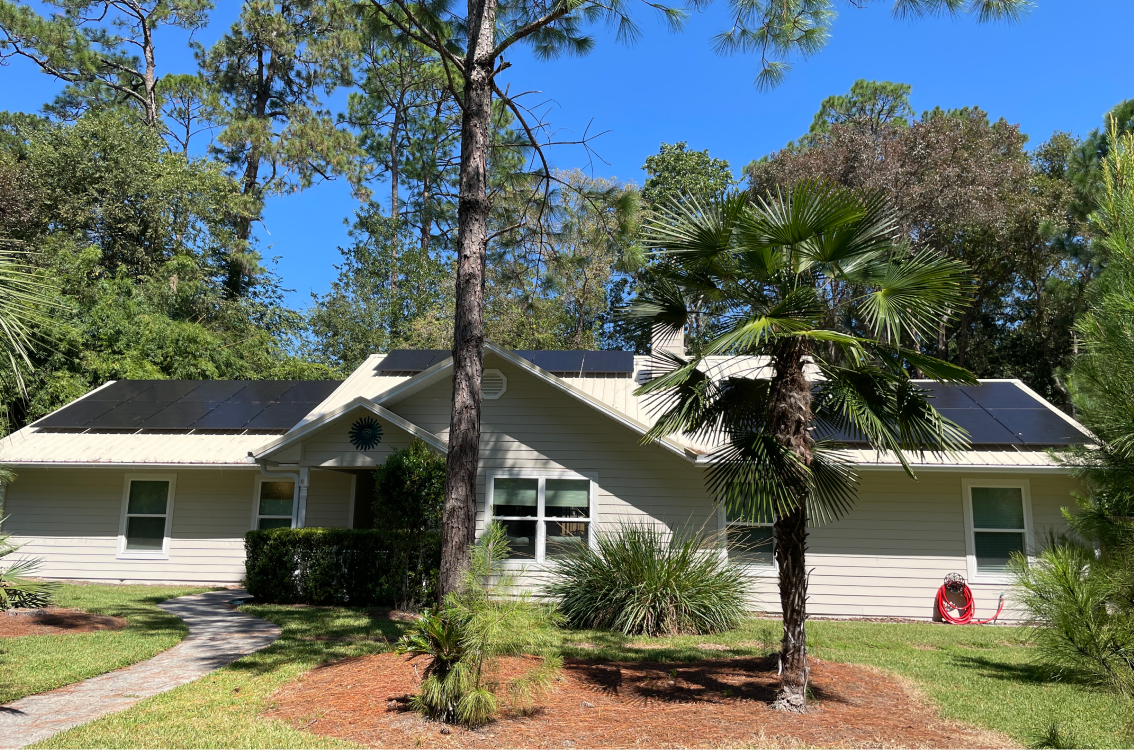Even on overcast days, the sunshine state of Florida receives an abundance of sunlight throughout each day.
Enough sun to solar power a home or business. But, one of the most critical issues with solar panels is that they only produce electricity when sunlight strikes their surfaces.
Since solar panels only produce energy when the sun is shining on them, solar panels do not create power at night.
Adding solar energy battery storage to solar panels for homes in Florida allows the system to capture and stockpile the solar energy during the day for three purposes: use at night, improved peak-use balancing, and emergency use during utility outages.
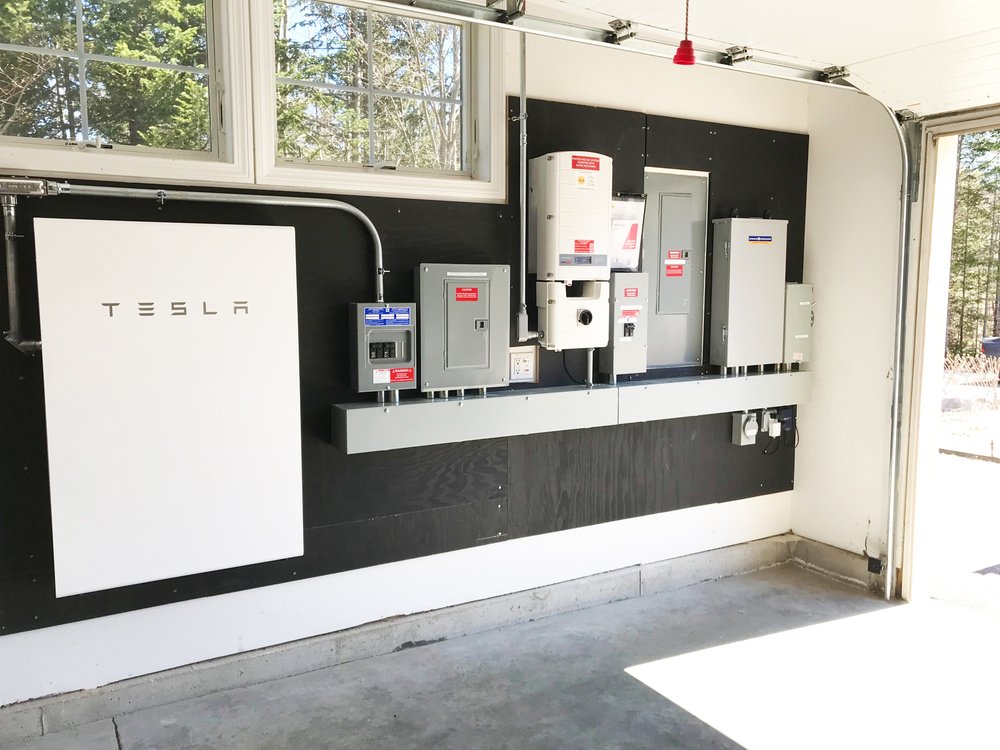
Together, solar panels and battery storage create the ideal solar energy ecosystem.
With solar power and battery storage, the energy that solar panels create and the user doesn’t consume immediately is stored using batteries.
The stored energy is then available at night or on cloudy days when the sun makes less power or during a utility outage.
In some instances, the solar installer programs the system to use the battery power during peak utility rate hours to offset high demand kilowatt costs.
What is solar energy storage?
Solar panels themselves do not store electricity. Solar panels only create the electrical current. When connected to inverters and the utility grid, electrical current constantly flows from solar panels to the grid whenever sunlight strikes the collection surface.
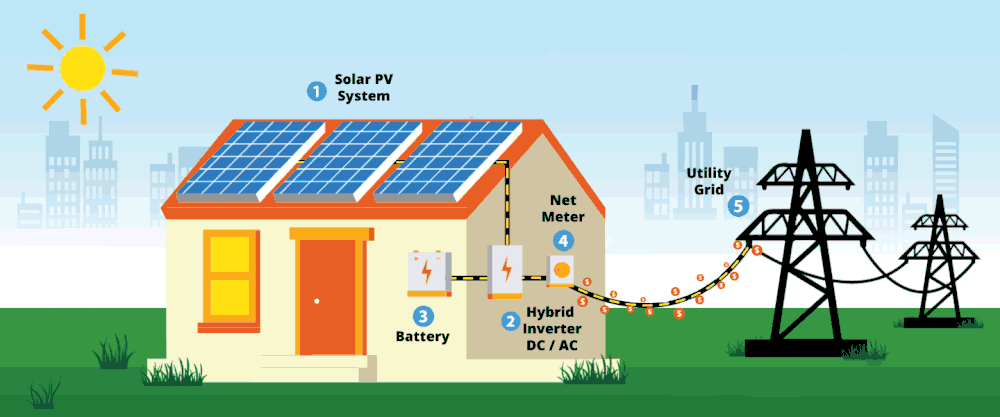
A set of two or more solar panels connected together is called a solar photovoltaic (PV) array. Anytime the sun strikes the PV array, the system creates electricity.
The home or business immediately consumes the electricity generated in Net Metering configurations. Extra or unused electricity proceeds through to the utility grid to be shared.
Having a solar energy storage system, such as a Tesla Powerwall in Florida, the extra electricity is stored on-premise in batteries and available whenever the panels are in the dark. An optional Tesla home charger installation offers electric vehicle recharging as well.
If you live in a place that experiences recurring brownouts or has a decaying grid, solar batteries can also help insulate you from the effects of poor utility grid management. Solar power and battery storage are the perfect combinations.
The ability to store PV-generated energy in batteries allows you to be more energy independent, have a cleaner environment, and save money.
If you want to :
👉 ensure you’re getting the best and latest technology,
👉 feel comforted, educated, and safe,
👉 deal with a local company that is always available for all your future needs
PPM is the right choice for you, as we were for over 1,000 other Florida residents who chose our team to install their energy storage.
Click the link below to schedule your FREE consultation with one of our solar specialists today!
GET YOUR FREE QUOTE IN ONE DAY
Main types of solar energy storage
There are currently four types of batteries fitted for solar energy storage:
LEAD-ACID BATTERIES
Since the 1800s, lead-acid batteries have been used to store energy. They are the tried and tested technology of the solar battery world.
LITHIUM-ION BATTERIES
Although a newer technology, lithium-ion batteries quickly became one of the most widely used solar battery systems in solar and electric vehicles and PV systems
NICKEL-CADMIUM BATTERIES
Also available since the late 1800’s nickel-cadmium batteries can be used as solar storage. However, they are not common.
FLOW BATTERIES
These water-based electrolyte liquid batteries are an emerging technology. They tend to be larger than other batteries and more expensive.
How do solar batteries work?
Solar battery banks are energy cells connected to solar panel PV arrays. The cells are rechargeable thousands of times, known as cycles. Because they are rechargeable, the electricity is often used at night, during emergencies, or to balance energy usage during high-demand utility costs.
Battery systems require no maintenance and are automatically engaged to provide electricity when power fails on the utility grid. Having a battery back adds peace of mind knowing critical equipment is operational during grid failure.
“DO YOU NEED A BATTERY FOR SOLAR PANELS?”
Solar panels do not require a battery component; however, advantages of using batteries are often beneficial, in the appropriate capacity.
Is it worth it?
Determining if battery backup storage is worth it is more involved than deciding if solar is a good fit.
Most solar panels in Florida are operating under Net Metering agreement and grid-tied back to the utility, allowing the home or business to pull electricity from the grid at night or cloudy days when the system generates less energy. Therefore, there is no genuine need to store electricity for future use in Net Metering because power is always available from either the solar array or the grid.
However, grid-tied systems can have outages. A solar system with battery backup automatically switches to the battery system during outages. A solar energy system without backup batteries goes down entirely until the grid goes back online. This off-state is a safety mechanism to ensure electricity doesn’t travel out of the solar system onto downed lines and potentially cause electrocution.
If you live in an area that experiences regular power outages, the benefits of storage for solar by adding a solar system battery backup is good. Doing so cleans up the power because the batteries automatically switch on during such events.
Another common practice for adding batteries is load balancing. For example, some utilities have tiered kilowatt rates that increase during peak-use times. In other words, when power is in the highest demand, which can be at the height of the need for air conditioning, the utility rates are higher. A properly designed solar system with batteries can use battery power during these scheduled times of increased utility rates.
Advantages of combining solar panels and solar battery systems
Installing an entire ecosystem of solar panels and battery banks is the ultimate goal of becoming energy self-sufficient and disaster-ready.
5 KEY BENEFITS OF STORING SOLAR ENERGY FOR YOUR HOME
Advantages of solar energy storage.
- Care-free emergency backup power.
- Use of electricity at night while panels are sleeping.
- Quiet backup power – unlike fuel generators.
- Load shifting during peak utility rates.
- Increased self-reliance on clean energy
How much does storage cost?
Since battery systems can be expensive, most net metering customers purchase battery storage systems for peace of mind in emergencies or to offset high utility demand and peak-rate energy costs.
Depending upon your solar PV array size and the amount of energy you intend to hold at any time will determine the extent of batteries storage needed. And the size of batteries can significantly raise the overall installation expenditure, sometimes even doubling the price of a solar panel installation.
Summing up
As you consider solar power battery storage cost, it’s essential to evaluate the costs of batteries, as related to the forecasted use during emergencies, load balancing, and supplemental evening use.
Batteries are not a requirement when installing a solar array. However, the benefits of solar battery storage may outway the negatives for you.
If you operate a farm, ranch, or business in a rural area of Florida, you may qualify for a federal REAP grant or loan. REAP provides financing for commercial solar panels in Florida and batteries used to store solar energy. The Rural Energy for America program.
Remember, experts in designing, installing, and monitoring solar energy systems and batteries can assist you at PPM Solar. Call the pros today for a no-obligation evaluation.
